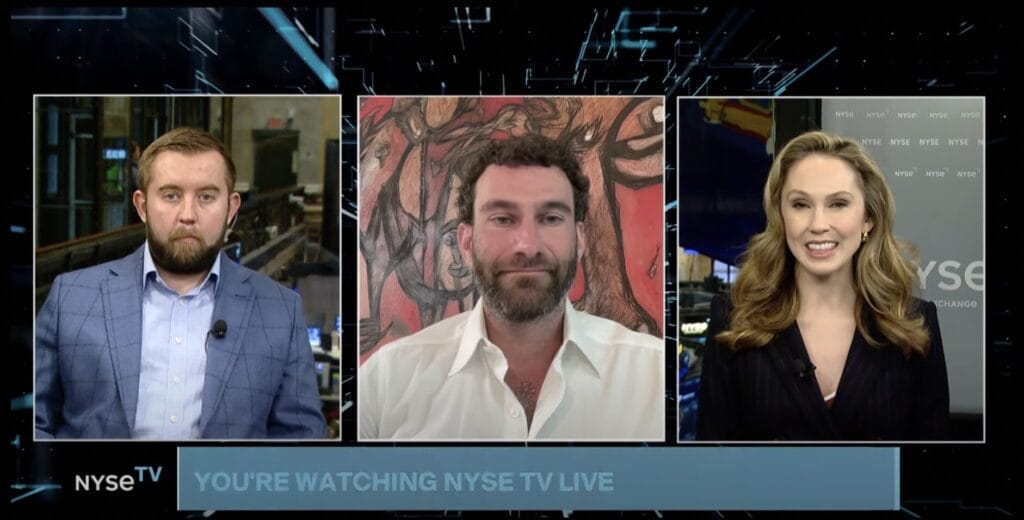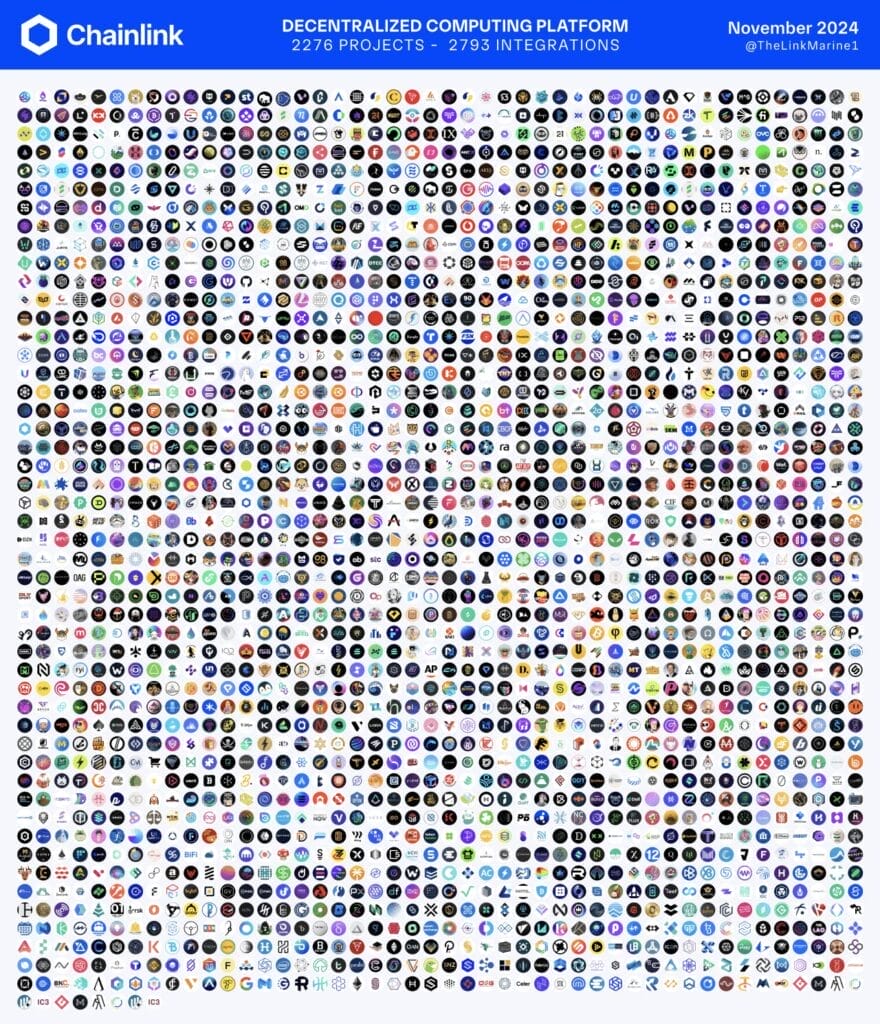November was a momentous month for Chainlink.
World Liberty Financial (WLFI), a new DeFi protocol backed by the 45th President and current President-elect, Donald Trump, announced plans to adopt Chainlink’s industry-standard oracle services on leading liquidity protocol, Aave, pending approval from its governance platform.
Launched with the goal of “safeguarding the global status of the US dollar” by promoting stablecoin adoption and broadening DeFi’s user base, WLFI selected Chainlink for its security track record and broad suite of web3 services, such as Cross-Chain Interoperability Protocol (CCIP) and Proof of Reserve (PoR).
To elaborate on how Chainlink empowers projects like WLFI to expand DeFi’s user base, Chainlink co-founder Sergey Nazarov and WLFI co-founder Zak Folkman joined Kristen Scholer for an interview on NYSE TV.
Folkman highlighted Chainlink’s work with Swift, which showed how CCIP allows traditional financial institutions to tokenize real-world assets (RWAs) that can transact with the multi-chain economy using existing infrastructure and messaging standards.
“As World Liberty Financial aims to onboard the next generation of web3 users and bridge people over who are already existing in a web2 world, it’s important that we have a solution that can communicate with other institutions that exist outside of our crypto bubble,” he said. “We believe that CCIP in particular is the only solution with proven use cases with messaging systems like Swift.”

Swift’s latest innovative project with Chainlink and UBS Asset Management illustrates how to settle tokenized fund subscriptions and redemptions using the Swift network and CCIP. The collaboration builds on previous work to create a CCIP-powered digital subscription and redemption system as part of the Monetary Authority of Singapore’s Project Guardian.
This system would enable digital asset transactions to settle with fiat payment systems across more than 11,500 financial institutions in 200 countries and territories around the world, and could ultimately streamline operations and reduce costly inefficiencies throughout the $63 trillion global mutual fund market.
Nazarov underscored the collaboration as an important step in globally scaling onchain finance via tokenized assets that serve as unified golden records.
“I am very excited by the upcoming adoption of these off-chain payment capabilities and how they will increase the flow of capital and expand the possible user base of digital assets,” he said.
Another important Project Guardian use case from Singapore-based investment platform ADDX, Australia and New Zealand Banking Group (ANZ), and Chainlink introduced an end-to-end solution for streamlining the life cycle of tokenized commercial paper while maintaining transaction confidentiality and meeting regulatory requirements.
The initiative leverages CCIP’s new privacy capabilities, which allow institutions to define conditions that permit authorized parties to verify certain data for compliance while keeping that same data private from all unauthorized third parties and adversaries.
“By leveraging Chainlink CCIP for secure and compliant blockchain interoperability, this use case showcases the utility of tokenized financial assets within a regulated environment,” said Inmoo Hwang, co-founder and Group CFO at ADDX.

During an interview with Nasdaq TradeTalks’ Jill Malandrino at Singapore FinTech Festival, Nazarov emphasized the significance of Project Guardian’s new use cases and Chainlink’s fundamental role in accelerating blockchain adoption by making new technology both compatible with legacy financial systems and compliant with privacy regulations.
“Traditional banks and asset managers want to give their user bases access to more and more onchain financial products, but they want to utilize their existing infrastructure,” he said.
“The traditional financial industry is used to having privacy and confidentiality for their transactions and Chainlink provides that confidentiality into the blockchain version of their transactions. You can not only get your systems to interact, but you can achieve the privacy that’s required.”
View the entire Chainlink ecosystem in one place.



